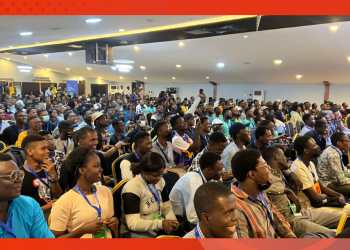Vodacom has entered a major digital transformation agreement with Google Cloud, signalling a shift toward cloud-native operations, AI-driven services, and a more competitive data economy across Africa.
A Partnership Built to Redefine Scale
Vodacom’s collaboration with Google Cloud is positioned as a strategic leap toward building an intelligent, automated network that can support massive data traffic, new digital services, and next-generation enterprise solutions.
The deal centres on modernising Vodacom’s core infrastructure, shifting legacy systems into a cloud-first environment, and integrating advanced data analytics. By partnering with Google Cloud, Vodacom aims to accelerate service delivery, simplify operational complexities, and achieve the agility necessary to compete in a digital-first telecom landscape.
Unlocking New Capabilities Through Cloud and AI
Google Cloud brings several assets to the table, and Vodacom plans to deploy them across its operations:
-
Machine learning to enhance customer experience and personalise service offerings.
-
Scalable cloud computing to support app modernisation and internal platforms.
-
Data analytics engines to improve decision-making and optimise network performance.
This gives Vodacom a more flexible backbone, one capable of supporting fintech expansions, digital lifestyle products, and enterprise cloud services across multiple African markets.
A Push Toward Smarter, Leaner Operations
At its core, the deal is about transforming how Vodacom runs its business. Migrating workloads to a cloud environment is expected to reduce infrastructure costs, improve uptime, and strengthen cybersecurity.
By leveraging Google Cloud’s automation tools, Vodacom can streamline internal processes, implement predictive maintenance across network assets, and reduce customer service delays. This shift frees the company to invest more in innovation rather than maintenance.
Setting the Pace for Africa’s Telecom Evolution
This partnership has wider implications for Africa’s digital economy. As telecom operators move toward cloud-native architectures, they can support new technologies like edge computing, IoT deployments, and advanced mobile financial services.
Vodacom’s move signals to the market that cloud transformation is essential for competing in an era defined by data, AI, and instant digital services.
What This Means for Consumers and Businesses
For everyday users, the benefits could include faster app performance, more reliable networks, and smarter customer service tools.
For enterprises, the deal opens the door to a richer portfolio of cloud, security, and analytics solutions delivered through Vodacom’s infrastructure, powered by Google Cloud’s global capabilities.
A Broader Vision for the Future
Vodacom’s transformation strategy aligns with its ambition to evolve beyond telecoms into a digital services powerhouse. The Google Cloud partnership accelerates this vision, equipping the company with the tools needed to build future-ready platforms across Africa.
The move underscores a growing trend: Africa’s largest operators are building the digital backbone for the continent’s next phase of economic expansion.
















